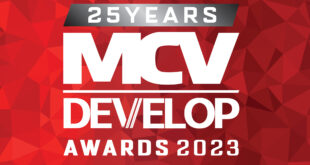If the last couple of years have taught us anything, it’s that we can never take too much for granted. Covid-19 may or may not be something that we continue to look at through the rear view mirror, but its legacy of remote and hybrid working continues to provide opportunities while posing questions around productivity.
Throw in the ever-present issue of a persistent skills shortage and a cost of living crisis that was nowhere to be seen twelve months ago, and it’s clear that it’s a unique and challenging time for game industry recruitment. To help us get a clear picture of how things have been, how they are now and how they might develop over the coming year, we’ve asked a crack team of in-house and agency recruitment experts to give us their take on the state of games industry recruitment, both for those with positions to fill and those eager to find their next challenge. Next up is Kathryn Spetch, consultant at Odgers Berndtson, Global Gaming Practice.
What have been the main challenges that recruiters have faced during 2022 and how have they/you worked to overcome them?
Some organisations assume that by enabling international remote working they will maximise the available talent pool and thus attract high-profile leaders with the specialist skill set they require. Whilst there is some truth to this, the reality is that many leaders are only interested in exploring roles offering an opportunity to effect significant change – be it growth or turnaround – and to do so, they want to be close to the heart of an organisation and its people and therefore, the promise of remote working does not appeal or solve a problem. // As an executive search partner, we advise our gaming clients from the outset of a search, through every turn. It is important that organisations consider the cost implications of a new leader needing to travel regularly, or advise on what would be expected from a relocation package standpoint.
How is the worsening cost of living crisis manifesting itself in terms of recruitment and in-work support?
We recently held a closed discussion for Chief People Officers in the industry and the cost-of-living crisis is high on the agenda of most UK based organisations and studios, with a number of initiatives taking place, from blanket pay increases to monthly fuel payments. Unfortunately for small indies, such initiatives may be financially crippling and thus, impossible. From an executive standpoint, rewind ten months and an opportunity to join an exciting VC-backed scale-up studio offering smaller salaries, but significant equity, was hugely appealing to many leaders wanting to make their mark on a scale-up story. However, the cost-of-living crisis means that many are less willing to entertain high-risk high-reward opportunities. This, in turn, has a knock-on effect on fostering independent innovation in the industry.
Is remote / hybrid working here to stay?
For the foreseeable, absolutely. It has allowed many studios to benefit from a much broader talent pool and whilst this has had a seismic impact on the creativity and success of many projects, it also brings forth new challenges regarding international hiring, tax implications, mandating of anchor days, etc. We are all still on a journey of learning with this, navigating the benefits, the complexities and potential pitfalls.
Do you feel the industry has moved forward in terms of diversity and inclusion this year? How so? Can you offer any examples?
This is an important question about a hugely important topic – but it’s also a complex question. There has been a continued movement across the industry to hold organisations to account for discriminatory and aggressive behaviour and it feels that there is a desire and willingness for more open dialogue about EDI in games. This dialogue is transcending into all manner of conversations, rather than remaining a siloed topic. Sophie Vo’s Rise and Play podcast is an excellent example of this through conversations with people such as Emily Yim and Betty Lapeyre about designing a studio for leaders as mothers, as well as my recent Plugged In video interview with Chris Bruzzo about the impact of inclusivity on both employees and the end gaming experience.
What industry initiatives or programmes put in place recently (by your organisation or others) have inspired or impressed you and why?
The gender balance in the industry, particularly at leadership level, is problematically poor. The Ukie 2022 census revealed that there has been no increase in the percentage of women in director level roles in the UK industry, remaining at just 20%. Addressing this balance is a complex challenge but here in the Gaming Practice at Odgers, it is important that we provide allyship and support where we can. And in November, I was delighted to host an event specifically for women in the industry, alongside fantastic guest speakers, Claire Hungate (Independent Director at Avalanche Studios Group) and Kate Marsh (NED at Devolver). Claire and Kate shared insight and advice on how to navigate the world of non-executive directorship for those interested in pursuing such a path.
What are your predictions for 2023 in terms of the challenges and opportunities that recruiters might face?
Unfortunately for small indies, the cost of living crisis could cause a strain on burn rate and that needs to be carefully managed. Outside of this, we will likely face the challenge of managing expectations of hiring organisations in line with the expectations of the executive candidate population. The executive recruitment market is hyper-competitive across interactive entertainment and therefore those organisations that position themselves as employers of choice will be the ones that win. Organisations that present purpose, values, a diverse workforce AND competitive compensation along with compelling career choices will be the ones that succeed in securing the best talent. Our role will continue to lie in supporting the organisations we partner with to understand and communicate their positioning to compete for great talent throughout 2023 and beyond.
What’s the one piece of advice you would give someone looking to find or fill a role that you wouldn’t have considered a year ago?
Candidates looking for new roles: Fewer organisations than you think have embraced remote working, especially for leadership roles. The need to be visible, build relationships, lead and create cultures that get the best out of people requires executives in the physical workplace. This is critical to success, especially in creative industries where proximity to peers brings added energy and ideas. At leadership level, it is vital that you can demonstrate your capability to give strategic clarity and bring disparate groups on a journey of change or growth.
Clients looking to find new hires: For large organisations – don’t be complacent. Your track record of success as a business creating enviable IP that is loved by players around the world will only get you so far. New studios are emerging at a significant rate, backed by significant funds with a crystal-clear purpose and ability to truly evidence their values. // For smaller, scale-up organisations – whilst reducing burn rate is critical, do not lose sight of the value you can create through investing in experienced and innovative leaders and ensure talent remains a priority.
Regardless of size, scale and ownership structure… be proactive, nimble and act with pace, putting your best self forward as a company. Sell to the candidates as much as you want them to sell to you and remember the value that those from less obvious backgrounds can bring.

 MCV/DEVELOP News, events, research and jobs from the games industry
MCV/DEVELOP News, events, research and jobs from the games industry




